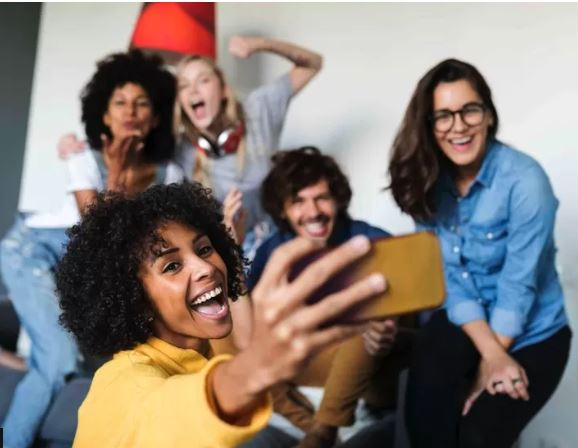Google’s recently launched Pixel 8 and Pixel 8 Pro smartphones incorporate AI to modify people’s expressions in photos, ushering in a new level of alteration of reality. These devices employ AI to analyze past photos of subjects, allowing users to replace expressions to ensure everyone in a group shot smiles or faces the camera. Google calls this feature “Best Take.”
In the era of smartphones, photo enhancements through digital edits have become routine, with apps and filters allowing users to adjust colors, lighting, and more. However, the latest generation of smartphones is taking photo manipulation to the next level, powered by artificial intelligence (AI), which is raising questions about the authenticity of images.
Additionally, these smartphones offer “Magic Editor,” which permits users to erase, move, or resize elements in a photo, be it people or buildings. The AI-driven Magic Editor then intelligently fills in the gaps with textures by analyzing the surrounding pixels, drawing from vast datasets of images to create seamless visual transitions.
However, these advancements have sparked ethical concerns. Critics have described Google’s AI photo manipulation as “icky” and “creepy.” There are fears that these capabilities could pose a significant threat to people’s trust in online content.
Professional photographers, like Andrew Pearsall, and academics warn that such AI manipulation raises questions about where the line is drawn between enhancing aesthetics and distorting reality. The concern isn’t limited to professionals; everyone engaging with AI-manipulated images must consider the implications.
Isaac Reynolds, head of the camera systems development team for Google’s smartphones, acknowledges these concerns but asserts that Google is committed to ethical considerations and points out that the AI features do not constitute “faking” photos.
For many, the use of AI in smartphone photography is about creating beautiful images rather than capturing unaltered reality. The inherent limitations of smartphone cameras necessitate AI to enhance images by filling in details that don’t exist, thereby producing visually appealing pictures.
While photo manipulation is not new, AI has made it easier than ever to augment images, raising questions about the boundaries of photo editing and the blurring of reality and enhancement.
This trend is not unique to Google; other companies have faced criticism for similar AI-driven enhancements in smartphone cameras. Samsung, for instance, received flak for using deep learning algorithms to improve photos of the Moon, making them appear clearer and more detailed than they were in reality.
AI is revolutionizing the world of photography, making it simpler to manipulate images, but it is also forcing society to confront challenging ethical questions surrounding the boundaries of reality and artifice in photos. –CNN







